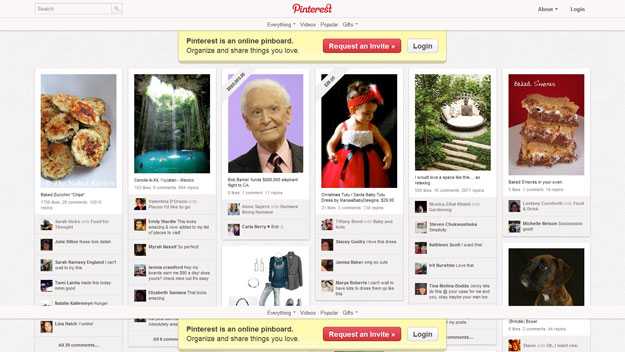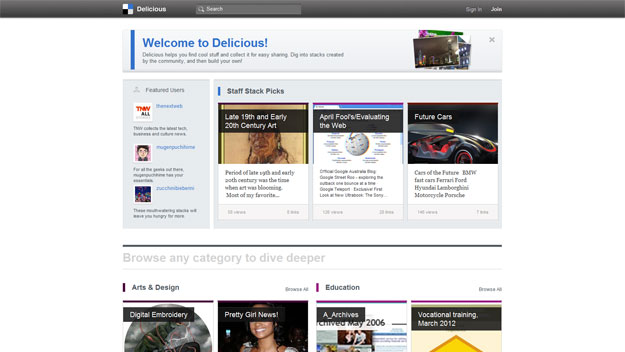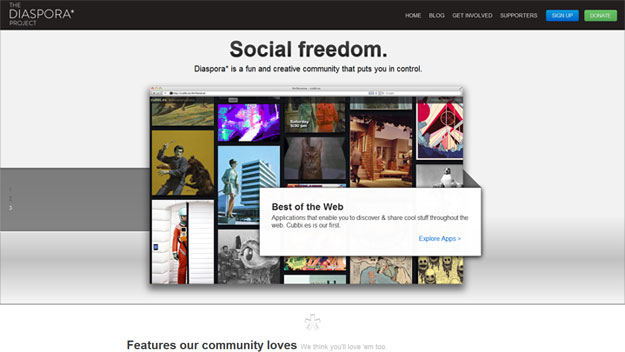In its early days, social networking seemed like a passing trend that would amount to nothing more than a silly pastime for teenagers. However, the true power of social media is now clear: Twitter has replaced traditional news outlets as the fastest source of breaking news; individuals rely on Facebook to communicate with friends and family as much as they do their phones; and huge corporations are using Facebook and other social media sites to promote their brands.
Today, just about everyone uses or has heard of Facebook and Twitter; many of us know about LinkedIn, GooglePlus and StumbleUpon; if you have a smartphone, you might be familiar with some mobile-based networks like Foursquare and Instagram. But these are really just the tip of the iceberg when it comes to social media – there are over 200 active social networks, each with its own unique community and set of functions. Although there’s no point to joining a new social network just for the heck of it, joining a network that is tailor-made for interests could really pay off – either personally or professionally. Listed here are some fast-growing social networks that you may just find useful.
Pinterest – for the visual thinker and the crafty retailer

You’ve probably heard of Pinterest, as it is one of the fastest-growing social networks. Pinterest is not a “general” network like Facebook; rather, it is a social photo-sharing site. Users can “pin” pictures of things they like (food, crafts, clothes, celebrities, etc.) to virtual “boards” shared with other users who can then comment or “repin” the picture to their own boards. That’s all great, you say, but how can I use it in a meaningful way?
If you only use Pinterest to collect pretty pictures, it’s basically just a time-suck (if a very fun and addictive one!) However, if you use it to organize ideas, it has the potential to become much more than that. For example, you could use Pinterest to collect ideas for what you want your wedding or baby nursery to look like. You could use Pinterest as a sort of visual shopping list or to collect inspiring ideas. For visual thinkers, Pinterest can be a great way to organize your thoughts.
Professionally, Pinterest can, of course, be used for any kind of creative brainstorming – for example, a writer might use it to develop a visual “story board” for his next novel; a project manager could use it to share project ideas with her team members. In a marketing sense, you can use Pinterest to increase traffic to your website, as you have the option to attach a link to any picture you post. As a result, retailers are cashing in on Pinterest trend big-time by “pinning” pictures of their wares with links to purchase them. Does your small business sell a “pin”-worthy product like cool gadgets or adorable handmade baby clothes? You might be able to cash in on the Pinterest craze, too!
Tumblr – for the aspiring artist and the cool media brand

Like Pinterest, Tumblr is highly visual … and highly addictive. Specifically, Tumblr is a hip micro-blogging platform that makes it easy to start your own blog, or “Tumblelog,” which you can use to post you own content or to “reblog” content posted by other Tumblr users. From your computer or mobile device, you can quickly and easily post or reblog text, pictures, videos, and even animated GIFs and mp3s to your Tumblelog. If people think your content is good, or if you follow a lot other users, you will gain followers, like on Twitter. For your Tumblelog theme, you can choose from a number of free or paid designs, or you can create your own.
As with other social networking sites, you can use Tumblr as a fun means to kill time, or you can use it with a specific goal in mind. Although many people use Tumblr primarily to browse and reblog content, creative professionals can use it to share and promote their own content, whether that be art, photography, poetry, music, or anything else. Some writers, for example, have even used Tumblr to launch a print publishing career.
Various broadcast, fashion and publishing brands, both large and small, have Tumblr presences. If your business is involved in any kind of media production or has an especially hip or visual aesthetic, you should probably be on Tumblr. Keep in mind that Tumblr users are young and savvy and don’t like to be sold to; you should use your business Tumblr more for building an image/reputation than for direct sales.
Delicious – for the content curator and the website entrepreneur

Delicious falls into a category of social networking sites called social bookmarking (others include Digg, Reddit, StumbleUpon and a host of others). You can use social bookmarking to collect, tag and share links to content on the Internet. Depending on what you’re into – tech news, fashion, travel, cooking, or quantum physics – social bookmarking can be the most effective way for information junkies, bloggers and self-described content curators to find and disseminate the latest and greatest web content.
Social bookmarking incorporates tagging, which has a search engine-like function – except with social bookmarking, results are delivered based on tags made by other social sharers like yourself, rather than by search engine algorithms. With Delicious, one of the more popular social bookmarking networks, you can collect and share links to your favorite articles, videos, tweets, etc., in themed stacks, which you can then share or keep private.
For anyone who aims to drive traffic to their website using the methods of search engine optimization, or SEO, social bookmarking sites like Delicious are an essential piece of the puzzle. By bookmarking your valuable website content (articles, white papers, blog posts, infographics) on Delicious and tagging it with relevant keywords, you can create backlinks to your website which will increase your clout on search engines like Google. Just don’t abuse this feature by tagging unrelated or purely promotional content – again, what makes social bookmarking valuable to users is that the content is hand-picked, or curated, by other humans. If you abuse social bookmarking by vouching for content that’s not that good in order to promote your own agenda, other users will catch on to your game and report you. Even the Google algorithm now has ways of detecting website owners who try to artificially boost their site rankings using unscrupulous SEO tactics.
Diaspora – for the fed-up Facebook user and the privacy-conscious business

Diaspora is an open-source, general social networking site and alternative to Facebook. Many Facebook users have concerns about Facebook’s security and privacy policies, and rightfully so. With Facebook, you never have full control over the information you share; Diaspora offers all of the same social functions, except it doesn’t store your personal data, claim any ownership of your content, or censor your content in any way. Diaspora is also completely open-source, so you have the choice to host your account on your own server or on one of many community servers (called community pods) – there are no centralized servers that keep track of user data. Diaspora also has a tagging functionality similar to that offered by Twitter and social bookmarking sites.
A privacy-conscious business that wants to use social networking features while maintaining full control of their data can use Diaspora as an internal social network, hosted using their own servers. Nevertheless, it’s not yet clear whether Diaspora will gain a large enough audience to emerge as a viable Facebook competitor – for personal or for business use.
…and many more

As mentioned, there are hundreds of social networking sites tailored toward just as many interests. There’s Curisma for discovering cool tech, deviantART for buying, selling or admiring art, GoodReads for people who love to read or writers who want to promote their work, and Foursquare, which brick-and-mortar businesses can use to promote themselves and consumers can use to find promotional deals. Do a little research and you will probably find some awesome niche social platforms specifically geared toward your personal or professional interests. Or, if you’re so technologically inclined, you can even create your own social network.
